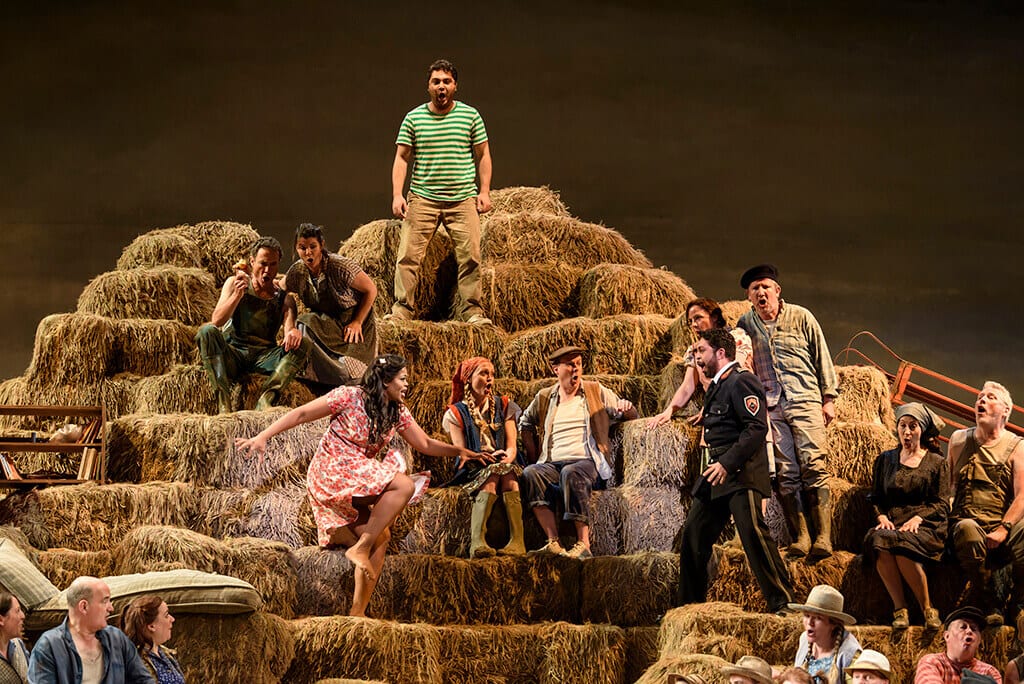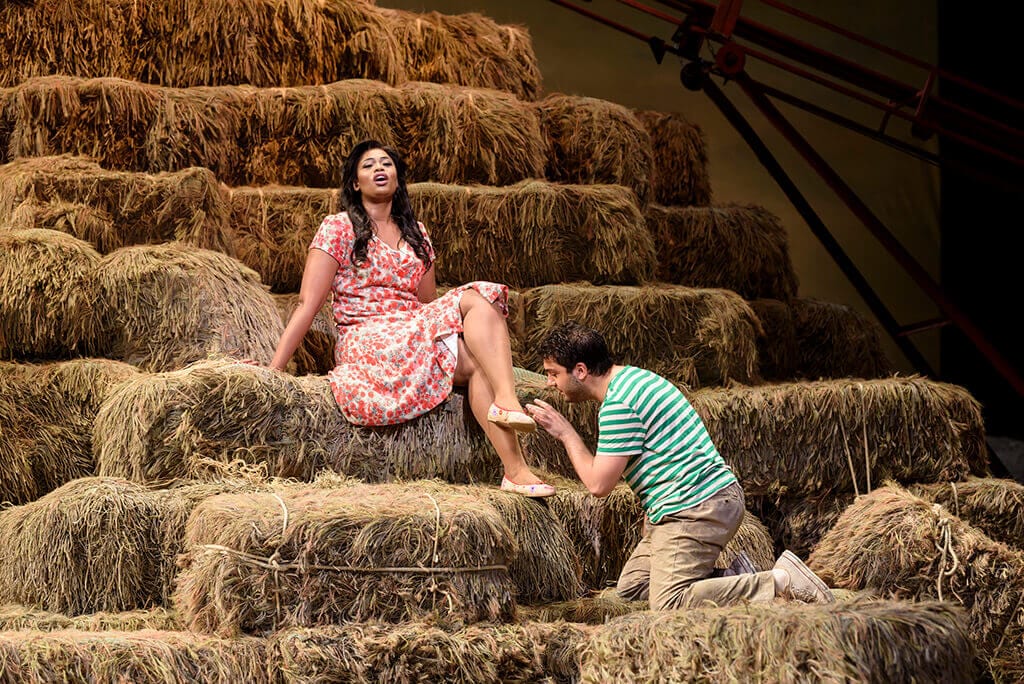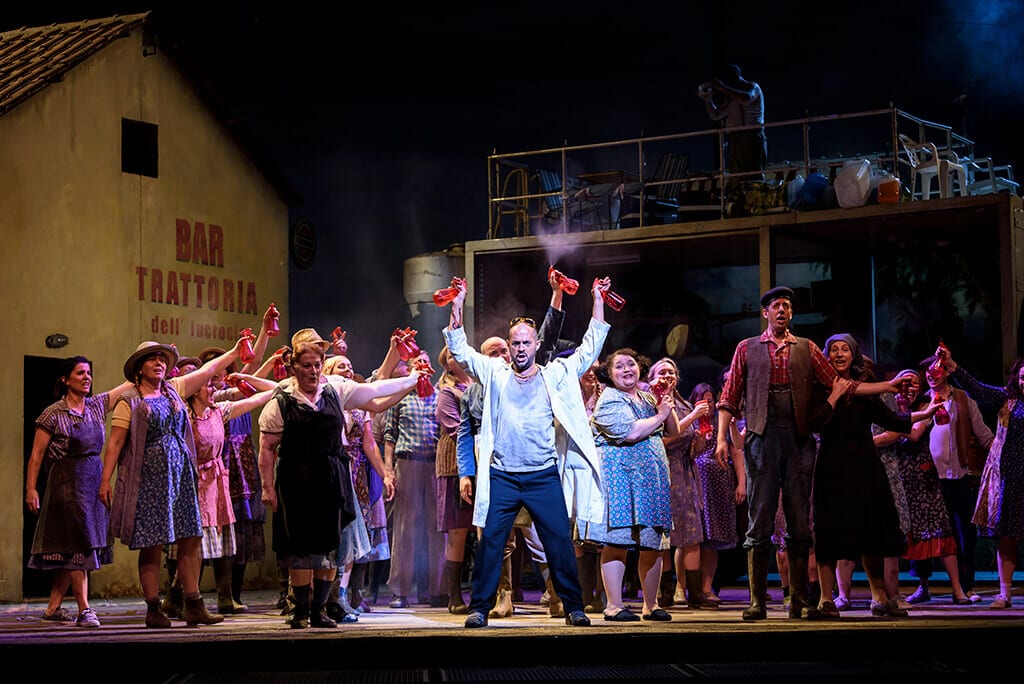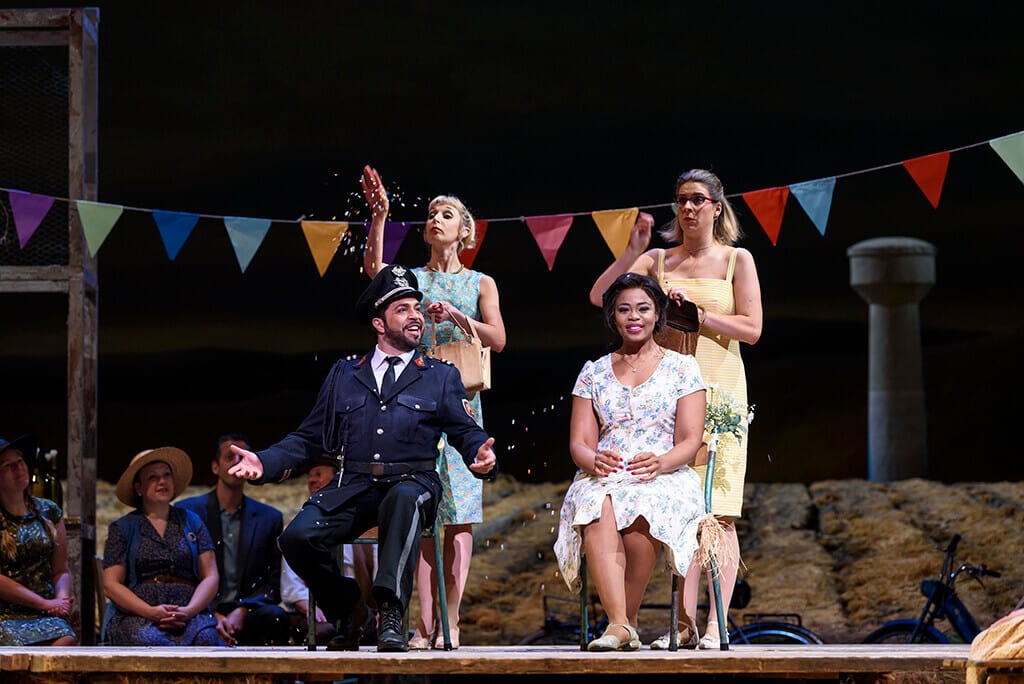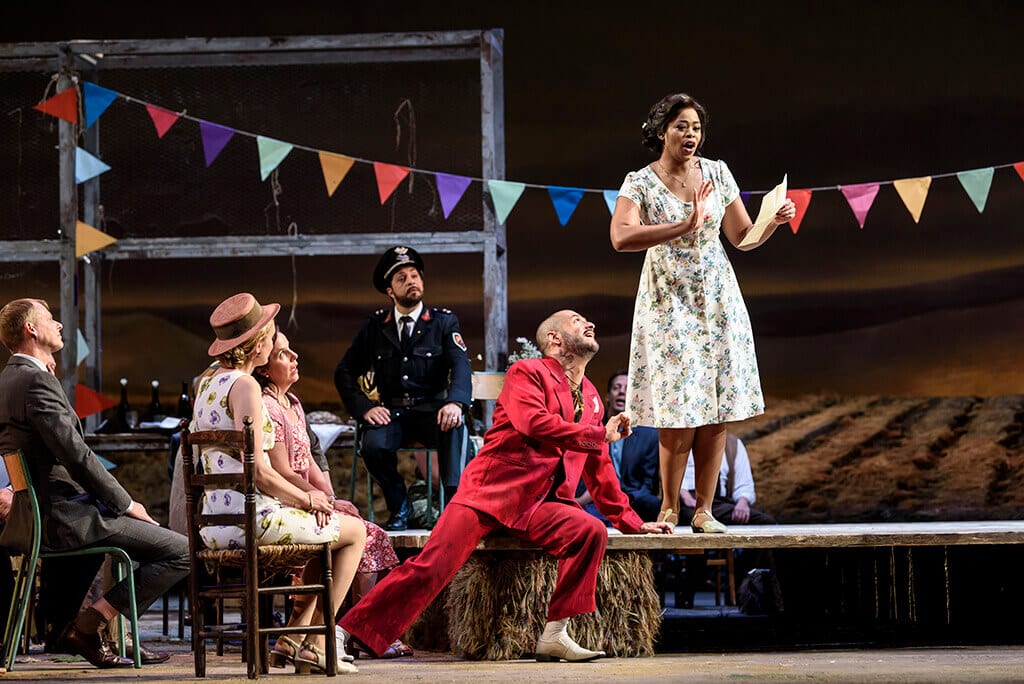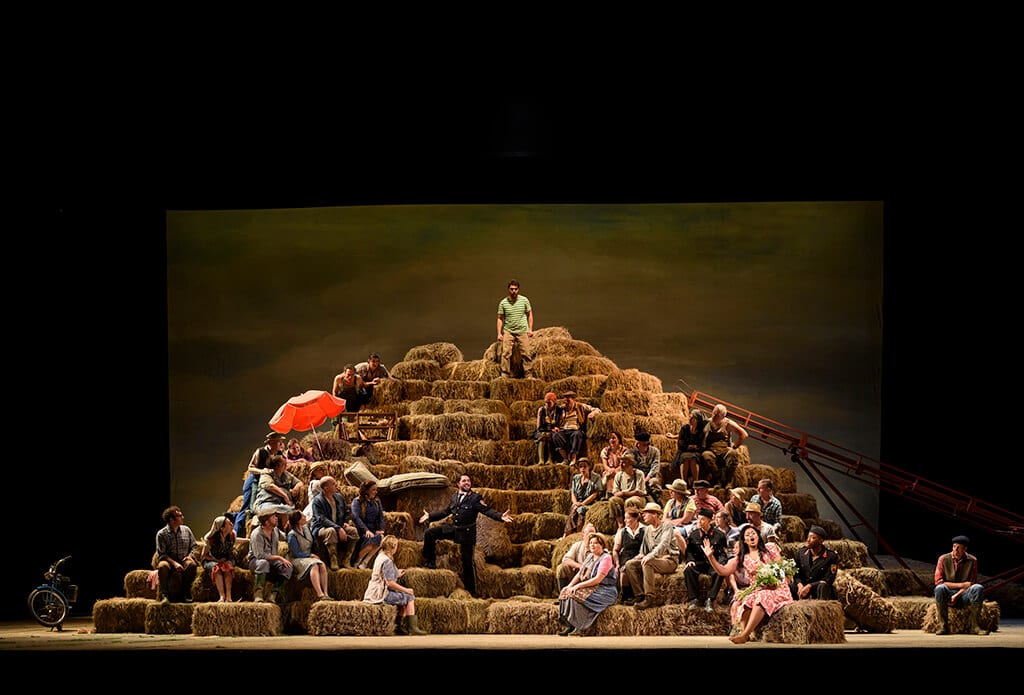L’elisir D’amore, with its highly effective musical contrasts, propelled Donizetti into further international recognition and stardom in 1832, confirming the great success of his tragic opera Anna Bolena (1830). Recognised immediately as one of the masterpieces of Italian opera buffa, this opera ensures the survival and frequent revival of this love potion in the active repertory of Opera Houses.
In this perfectly pitched fourth revival of Laurent Pelly’s 2007 production, the setting of this bucolic romantic comedy is updated to the world of an Italian village in the 1950s. The dramatic impact of this delightful evening draws on impeccable and enticing musical and stage performances excelling in comic timing.
Nemorino, outstandingly performed by the American tenor, Liparit Avetisyan, is a young, naïve peasant, passionately in love with a landowner, Adina, a wealthy and capricious farm owner who mocks him and seems more interested in the cocky Sergeant Belcore, amusingly performed by the Italian baritone Paolo Bordogna. Bordogna’s Belcore delights with his exaggerated cadence and full vocal swagger, not to mention his overstated gestures creating a charming commedia dell’arte characterization.
In an act of desperation, to gain Adina’s love, Nemorino parts with all his savings to buy l’elisir d’amore, the ‘love potion’ from Dulcamara, a quack doctor. The love potion is nothing other than Bordeaux wine, but the effect is miraculous when lovesick Nemorino drinks it all. Melancholy and shyness melt away and give way to confidence with women.
Avetisyan’s voice conveys with colour and moving tenderness his emotions as well as his lack of both success and confidence. When he sings the cavatina ‘Quanto é bella, quanto é cara’ (How beautiful she is, how dear she is), the lyrical and sustained melody together with Avetisyan excellent acting skills, endears the lovelorn lad to the audience. His delivery of the best-known number in the opera, ‘Una furtiva lagrima’ (A single secret tear), is memorable, moving and vocally superlative.
His comic timing, like that of the rest of the cast, is impeccable.
Pretty Yende, the South African soprano, in her debut performance at the Royal Opera House, as Adina, begins as a light-hearted coquette. Yende’s Adina is uncertain and unclear about her emotions, despite appearances. Donizetti does not give her, and she clearly does not demonstrate at first, her own clear personal voice, until, that is, she realises her true emotions: that she is after all in love with Nemorino. Yende’s performance is alluring and effective, moving from a woman who is all public mask and persona to a sincere and more mature integrity of feeling. Her insecurity is exquisitely masked, keeping the men around her guessing. Her voice stands up to Avetisyan’s and their duets bounce of each other as well as complement each other. They suggest depths of characterization in Donizetti’s music that are often ignored by less subtle directors and performers.
The quack doctor, Dulcamara, a showman personified, is delightfully performed by the Italian bass-baritone Alex Esposito, who plays straight to his audience in Udite, udite, o rustici (listen, listen o peasants). Esposito’s swagger and delivery of the patter of rhymes with a machine gun rapidity has the required effect on his gullible audience, who part with their hard-earned money for bottled dreams in the form of a pink liquid.
On stage we have the village youths riding Vespas, a lumbering van with the quack doctor, a tractor and even a dog that makes two brief appearances: all these impact on the ambiance in which the four principal characters are placed, enhancing and juxtaposing the dramatic and musical impressions to secure a dynamic and imaginative musical uncertainty that is both rewarding and utterly enjoyable.

